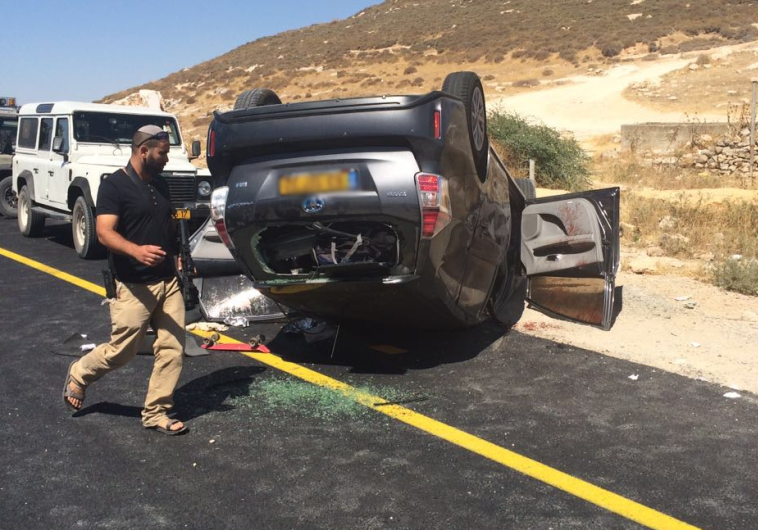Son was among first to arrive on scene where Rabbi Mark was killed
Family members recount their arrival at the tragic scene of the attack on Route 60 where Palestinian gunmen killed Rabbi 'Miki' Mark.
 Shooting causes car to flip over on Route 60- July 1, 2016(photo credit: FIRE AND RESCUE SERVICE)Updated:
Shooting causes car to flip over on Route 60- July 1, 2016(photo credit: FIRE AND RESCUE SERVICE)Updated: